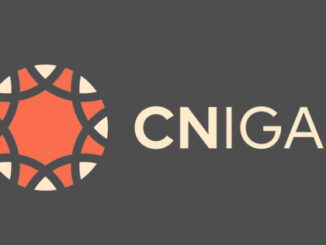Sponsored Content by Wipfli
 When it comes to financial information system expertise, there is a huge benefit of working with an expert who spent 15 years, over half of their career working inside the day-to-day operations of Tribal gaming.
When it comes to financial information system expertise, there is a huge benefit of working with an expert who spent 15 years, over half of their career working inside the day-to-day operations of Tribal gaming.
That operational experience is what makes April Bacon, Senior Manager for Wipfli, an integral part of your project team and subject matter expert that can talk the business when deploying modern accounting and financial management solutions. April understands what keeps operators up at night because she has been there many times before. She is very passionate about the technology solutions that can be a game-changer for most Tribal operations including Tribal Governments, Tribal Casinos, and other Tribal Enterprises.
April’s idea of game changing enhancements that can tackle these challenges head on is cloud-based accounting. She explains below why the investment will save money, time, and provide greater levels of control by reengineering processes to match best practices for processes and gain higher levels of business intelligence through streamlined reporting performance metrics in Tribal organizations.
Following are ten areas where Bacon believes cloud-based accounting has the most impact:
1. Continuous Accounting: Proactive versus reactive decision-making
Continuous accounting is the ability to create financial information and deliver it to department managers, direct to the end users, in a succinct, real-time fashion This empowers the end user by allowing them to make proactive informed decisions for their functional area rather than reacting based on outdated information. If managers are currently getting financial information, ten, twenty or even thirty days after the fact, it makes it very difficult make critical strategic decisions in that current financial period. Moving to cloud-based allows for more real-time reporting, which gives managers fast information. Ideally, we want financial information to be out to the end users the next day so that they can see what they did for the day before.
For example, if you don’t have that continuous close, it’s a lot more difficult to detect anomalies and then make necessary changes in the same financial period. That could be a variance that you’re not able to control or asking, “Did my promotion for the weekend produce good financial revenues for me?” With real time data, that marketing director can make changes and corrections before the next week’s promotion rolls out. It’s about being able to take the information that you have and doing something with it quickly.
2. Taking the Burden off IT
Many properties we work with would rather deploy their IT department on activities that improve customer experience or increase organization efficiency. Organizations without cloud-based accounting typically require their IT team with maintaining hardware, ensuring that software is up to date, and data is securely backed up.
While these operational IT tasks do little to further the customer experience, they are not optional in the current environment where data breaches and cyberattacks have become commonplace. When an organization moves to cloud-accounting, the increasingly nuanced and complex IT operational burdens are transferred from more generalist internal IT employees to the cloud accounting vendor. Reputable cloud accounting vendors are able to employee teams of specialized IT professionals to handle these very important and complex needs. See related article here.
3. Integration Possibilities with Front of House Solutions
Again, the number one challenge is getting real-time information. Manual processes also lead to outdated, stale information, not to mention the possibility of mis-keying data and producing erroneous financial information for decision makers. This creates the need and desire to streamline processes through integrations and reduce the risk of human error.
The ideal solution would be to embrace all integrations possibilities with front of house solutions and automate daily revenue and expense data to the general ledger. This will generate a cost savings for payroll and enable revenue auditor to move from data entry clerks and into that role of a true revenue audit analyst. Imagine what possibilities will be available when you streamline your cage and vault audits, food and beverage audits, and gaming audits.
4. Go Paperless for Efficiency (and $$ saving)
There is a massive amount of paper that some Tribal casinos are dealing with. I’ve seen storage trailers lining the back of the building all to house paper in compliance with the organization’s document retention policy. With cloud-based systems, being able to scan and attach all supporting documentation within the software and store the information in the cloud, it allows users to easily go back and find that data. For example, when you’re going through your financial audit, instead of going and digging through boxes, filing cabinets, or storage trailers you can easily navigate your cloud based system for later access to that transaction where you can review, email, or print on demand. Consider the cost of paper, labor, security, and storage using printed documents.
5. Process Automation
Process automation starts with reviewing current processes. It is important to ensure you are talking with all people in your process reviews to understand all key components of the process. Throughout these reviews ensure you are reviewing what is working well now, what your goals and aspirations for the future are, and where you can streamline or enhance your processes. In reviewing the procurement process, an organization would want to ensure they are moving from request to order to receipt to payment with ease. Furthermore, we want to capture all backup documentation as the process flows through to completion. Is there a proper segregation of duties throughout the process to help mitigate fraud? Is your approval process captured on paper outside of your current system? Is there a way to automate it to speed up your processes and maintain a system generated paper trail? These are all great questions to ask as you think about automation.
6. Faster Electronic Approval
Above, we talked about getting rid of the paper and automating approvals, so let’s talk about check signatures. Rather than printing checks and searching for check signers to get our payments to the vendor, we can now do that all with a click of a button. Check signers could access the supporting documentation via the scanned documentation within the system, review, and approve the payment request. Once approved, the signature of the approver will print on the check when Accounts Payable processes payment. This creates further time savings in chasing down signatures.
Also consider your approval process. If we continue a manual approval process it can easily be modified and fall out of line from your organization’s policies. With electronic approvals, there is a greater chance of adhering to policy and an automated audit trail of changes that date and timestamp which user made changes. This makes internal auditors much happier.
7. AI and Machine Learning – Helps Mitigate Fraud
Machine learning is essentially a subset of artificial intelligence. The more that we’re compiling data within the system, the more we are building the history of normal posting data or what should be posted to a specific GL account or department during a reporting period. This helps us detect variances, find anomalies, and ultimately mitigate the risk of fraud. Instead of manually scanning or compiling data, looking for those anomalies, we can have this process automated for Finance.
For instance, if history has proven the organization usually spends $5,000 on supplies with a specific vendor but for the current period, we have already spent $7,500, wouldn’t it be great if my cloud-based system could make this variance more noticeable for Finance staff through things like conditional formatting and email notifications. Is the uptick in supply purchases simply due to an increase in current market prices? Or should we be viewing transactions at greater detail to see if there is a possibility of collusion between the Vendor and key members of the process?
8. Experience Time Savings During Audit
This has become more prevalent since Covid. Using a cloud-based system, auditors can access your environment and review sample selections from afar if your policy allows. We have customers that have attested to cost savings in their audits by using this approach. More of the preparation and sample review can be done remotely and reduce the needed number of auditors onsite. It also takes the burden off of finance for printing and compiling all necessary documentation for their review.
9. Access from Anywhere for Immediate Action
Since Covid, lots of folks had to do their financial processes from their homes since they couldn’t go into their offices. We learned that the GM of your property doesn’t necessarily have to be on property or on premise to be able to approve your transactions. Department Managers can review P&L information from somewhere other than their office. Board reports can be reviewed by granting read only access to board members. This will give them an opportunity to review data prior to the board meeting and have questions ready. It’s this ability to securely access data from anywhere that helps streamline and review the real-time data for quicker action where needed.
10. Reporting Across the Organization
Another critical area is being able to easily pull reports that are meaningful and impactful for you – for example, being able to take a month end report and see all of your departmental metrics side-by-side for an easy comparison of revenues and expenses. It is often a challenge when operating several properties to generate consolidated comparative reporting to easily see variations among properties. Continuous cloud-based accounting is phenomenal but adding consolidated reports at the click of a button is a game changer. No more compiling several excel documents into one comparative report.
Next Steps
When asked if there was a certain size of organization that could benefit most from cloud-based accounting, April replied, “I believe that every organization can benefit from continuous accounting because the more streamlined your processes are, the more information will be readily available to end users and decision makers, the more you will be able to rely on that data to be accurate, and the better off you’re going to be at audit time. Being able to get your information to department managers, to Tribal Council, to the NIGC, and your TGA will be a seamless process.”
According to Bacon, “Once the Tribal organization realizes they have outdated processes and/or software they have taken the first step. In engaging Wipfli, our Team takes the time to dive deep into the needs, goals, pain points, and wish list of each key value stream. We want to ensure we understand your current processes and help identify improvement opportunities from our deep industry expertise, operational knowledge throughout our team, as well and knowledge that we’ve gained during our implementations over the years. All of this will guide them to a best-in-class solution with best practices incorporated. It’s not the customer as one team and then our team – it’s really one team working together to get them to that best possible state.”
For more information about Wipfli, modern accounting and financial management solutions visit Tribal Gaming – Casino Accounting and Consulting – Wipfli



